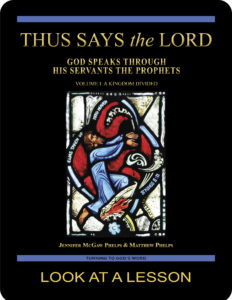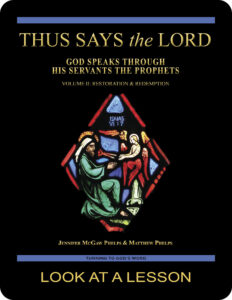rubbish
 One of the more amusing translation issues in the New Testament appears in the Letter to the Philippians 3:8 (NABRE), in which Paul writes: “More than that, I even consider everything as a loss because of the supreme good of knowing Christ Jesus my Lord. For his sake I have accepted the loss of all things and I consider them so much rubbish, that I may gain Christ.”
One of the more amusing translation issues in the New Testament appears in the Letter to the Philippians 3:8 (NABRE), in which Paul writes: “More than that, I even consider everything as a loss because of the supreme good of knowing Christ Jesus my Lord. For his sake I have accepted the loss of all things and I consider them so much rubbish, that I may gain Christ.”
The Greek word σκύβαλον (skubalon) is translated in the above passage as “rubbish,” a translation that doesn’t accurately reflect the original Greek meaning. Skubalon, rather than meaning “rubbish” or “trash,” actually indicates “dung,” “excrement,” or “manure.” While this translation difference doesn’t substantially alter the meaning of the passage, we readily can see how the actual meaning of skubalon significantly strengthens Paul’s point.
The question raised by this translation difference is one of political correctness. When, if ever, does political correctness go too far? The translators here appear determined to avoid using any word to indicate dung or manure, perhaps because the easiest and clearest word to use in such a context is taboo in English. As a result, they prefer to somewhat alter the meaning of the text. The underlying and basic questions we encounter are whether translations of the biblical text are fundamentally reliable, whether they serve as a useful but incomplete reference, or whether we think they ultimately reduce to so much rubbish.
related topics: scandal; sexual immorality; sin
you also may like our two-part study of the prophets

 Thus Says the LORD: God Speaks Through His Servants the Prophets—Volume I: A Kingdom Divided examines the prophets in their historical context using the First and Second Books of the Kings and other Old Testament passages written before the Babylonian Exile in 586 B.C. Volume II: Restoration & Redemption looks at the post-exilic prophets. This 51-lesson Catholic Bible study builds on The United Kingdom of Israel: Saul, David & Solomon Foreshadow Christ the King. Click on the books’ covers to view a sample lesson from each volume.
Thus Says the LORD: God Speaks Through His Servants the Prophets—Volume I: A Kingdom Divided examines the prophets in their historical context using the First and Second Books of the Kings and other Old Testament passages written before the Babylonian Exile in 586 B.C. Volume II: Restoration & Redemption looks at the post-exilic prophets. This 51-lesson Catholic Bible study builds on The United Kingdom of Israel: Saul, David & Solomon Foreshadow Christ the King. Click on the books’ covers to view a sample lesson from each volume.
 Click on the picture of the statue of Moses with horns (above) to learn more about Lost in Translation. A new entry is archived each Monday. Contact us to receive Lost in Translation by email every week. You may use any of the contact links on our website to ask Matthew a question.
Click on the picture of the statue of Moses with horns (above) to learn more about Lost in Translation. A new entry is archived each Monday. Contact us to receive Lost in Translation by email every week. You may use any of the contact links on our website to ask Matthew a question.

Leave a Reply
You must be logged in to post a comment.